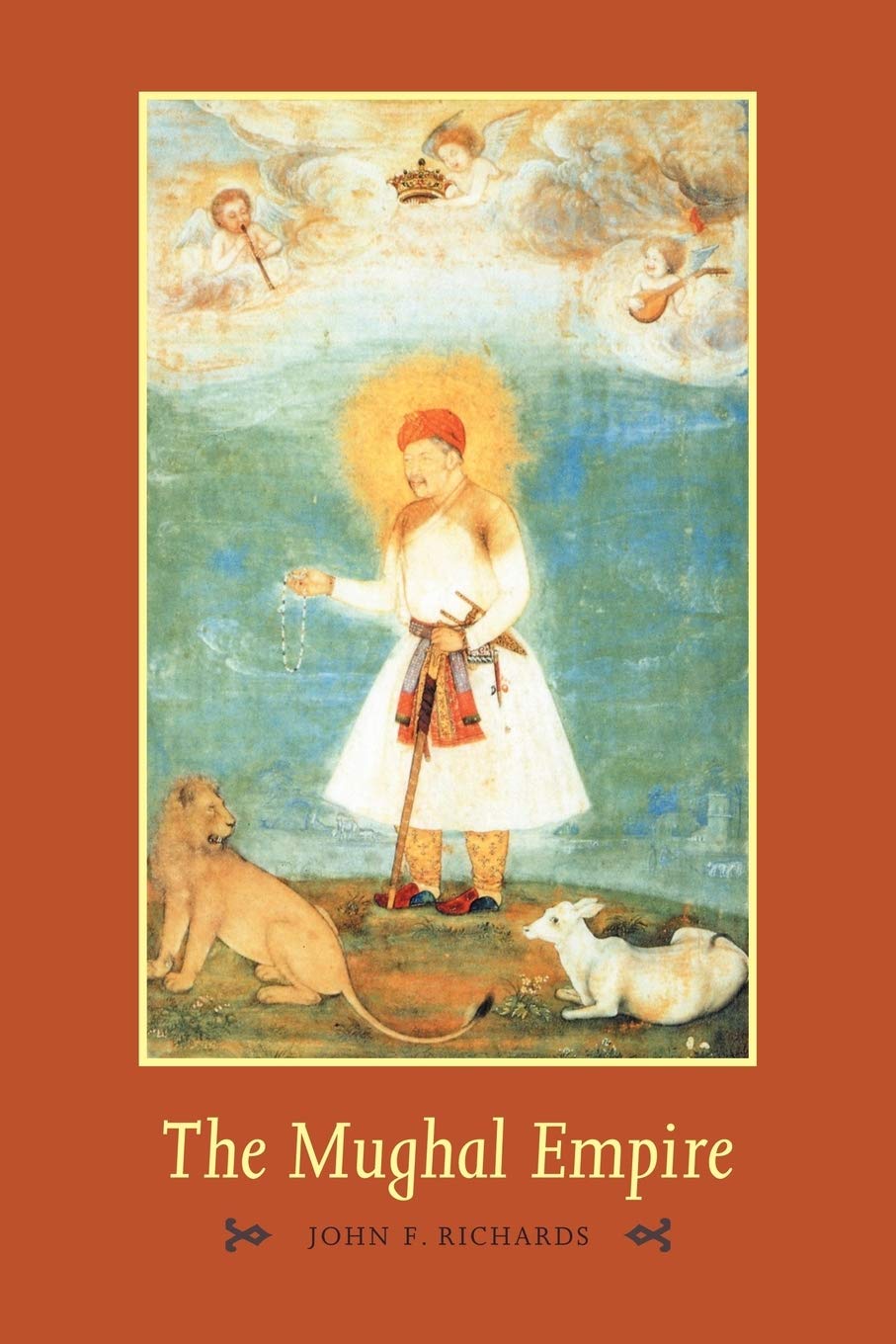Customer Services
Copyright © 2025 Desertcart Holdings Limited


Full description not available
R**N
Fine Survey; 4.5 Stars
A fine survey of the great Mughal Empire, one of the "gunpowder empires" that developed across Eurasia in the early modern period. This book contains 2 major strands; the basic narrative history of the Empire, and the development of the Mughal state and its impact on Indian society. Richards presents these strands in a series of chapters alternating between narratives of the reigns of the Mughal Emperors and more topical chapters examining the nature of the Mughal state, economic, and some social history. The latest and arguably most successful in a series of invaders from Islamic central Asia, the Mughals were the inheritors of prior Indo-Muslim states in north India and a sophisticated Islamo-Persian political tradition. The Mughal founder, Babur, benefited from intelligent use of firearms combined with heavy cavalry.Richards has an excellent series of analyses of the development and nature of the Mughal state. The early Mughal Emperors, particularly the highly intelligent (and illiterate) Akbar combined existing political traditions and some innovations to develop a relatively centralized state with formidable military and fiscal power. One key feature of the mature Mughal state was a cosmopolitan service nobility comprised of central Asians, Persians, Indo-Muslims, and Hindus. Somewhat in parallel was a sophisticated bureaucracy, staffed mainly by Hindus, able to consistently raise impressive amounts of revenue through direct taxation. Richards stresses that the Mughal bureaucracy penetrated in important ways to the local level and restricted, though incompletely, the power of local magnates. The Mughals had a considerable positive economic impact on India. Their success brought peace to much of India and they generally pursued policies aimed at economic expansion. These policies undoubtedly contributed to considerable population growth, agricultural expansion, increasing regional and inter-regional trade, and proto-industrialization. The Mughal tax system, which demanded specie, contributed significantly to the monetarization and marketization of the Indian economy. An interesting complement to the Mughal domestic economic expansion was considerable expansion of international trade, much by Europeans dominating the Indian Ocean. A great deal of the precious metals needed for Mughal currency was imported from the western hemisphere.The linchpin of the Mughal system was the Imperial Court. The whole system depended on capable leadership from the center and the Mughals benefited from a series of very capable Emperors. The importance of Imperial leadership is illustrated also by Richards' description of the decline of the Empire in the late 17th and early 18th centuries. The last great Emperor, Aurangzeb, was a capable and conscientious leader but also a pious Muslim whose pursuit of orthodoxy had a negative impact on the legitimacy of the regime and relationships with Hindu aristocrats. The Mughal state was also built around conquest and expansion. Aurangzeb's unremitting pursuit of conquest in South India led to draining wars with pronounced negative effects. Typical of central Asian descended dynasties, the Mughals never developed a clear succession mechanism and each succession resulted in a civil war among Imperial princes. Coupled with other stresses, the final succession war fatally compromised the power of the Imperial court and resulted in an India comprised of a set of regional successor states. This was the chronically divided and conflict plagued subcontinent that permitted opportunistic European conquest.
M**S
Extremely Poor Print Quality
The kindle version looks like a Xerox of a Xerox. It's really difficult to read. Very disappointing. I wish Amazon would take some care with the quality of the books they're selling.
Trustpilot
1 month ago
3 weeks ago